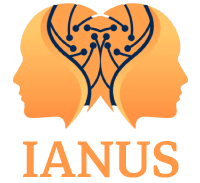
On September 11th, IANUS project’s partner Dr. Charlotte Bruns participated in a session on Trust in the Digital Sphere at the Science Summit during the 79th United Nations General Assembly. The section was held by the OPERAS project and aimed at sharing the first results of the “TrustOn 2024 – tackling disinformation” workshop, held at the Royal Library of Belgium (KBR) in Brussels this June.
With the fast development of AI and the rise of digital platforms, the latest years have seen profound changes in the dynamics that govern the creation and spreading of information. New challenges have thus risen when it comes to trustworthiness of digital information, prompting questions related to data privacy, algorithmic bias, online misinformation, and distrust in institutions. Fostering trust in the digital world is now paramount and will require innovative, complex strategies. The IANUS project has been involved in several events and collaborations to play its part in addressing these challenges.
The Science Summit is a premier global event uniting leaders, scientists, policymakers, and innovators with the aim to address contemporary scientific and technological challenges by showcasing cutting-edge research, sharing knowledge, and fostering international collaborations. Engaging in sessions, plenaries, and workshops, the Science Summit focuses on key areas such as climate action, biodiversity, health, artificial intelligence, and more. By bringing together diverse perspectives and expertise, the Science Summit at UNGA79 highlights science’s pivotal in sustainable development and contributes to shaping the future global agenda, aspiring to drive progress towards a more sustainable, inclusive, and equitable world.
Preliminary results from the Trust-on workshop were shared in the online session on “Fostering Trust in the Digital Sphere: A Multi-Stakeholder Approach Introduction,” whose aim was to explore innovative approaches and strategies to promote trustworthiness in digital interactions through multi-stakeholder collaboration.
The session covered an ample range of topics, such as infrastructure reliability, governance and regulation, mediation mechanisms, and scientific advancements. It pursued three main objectives:
- To assess the dimensions of trust to evaluate trust in the digital sphere involving different stakeholders.
- To establish models of collaboration for developing responsible Digital Public Infrastructures (DPIs) through principles of community living labs.
- To share best practices to combat AI-driven disinformation and ensure the quality and integrity of online content.
Participants co-developed recommendations with a range of actors— from science producers to policy makers— on building trust in science and countering disinformation. They were invited to openly exchange ideas, knowledge, and experiences, collaborating to create a more reliable and durable digital ecosystem.
The event was a valuable opportunity to emphasize the collaborative nature of science and trust. Science does not involve just scientists, but the entire science community and the public. Similarly, trust in science requires a holistic approach, where all actors in the ecosystem of trust collaborate to nurture trust in science, joining forces at the macro, meso, and micro levels to address the interrelation between science, politics and economy.
In collaboration with its sister projects VERITY and POIESIS, IANUS aims to co-develop recommendations on building trust in science together with the science community and actors engaged in science production, education, communication, policy, funding, and advocacy. The relationship between science and society is critical for addressing global challenges like climate change and public health. Warranted trust in science thus needs coordinated efforts to tackle disinformation and protect scientific freedom.
